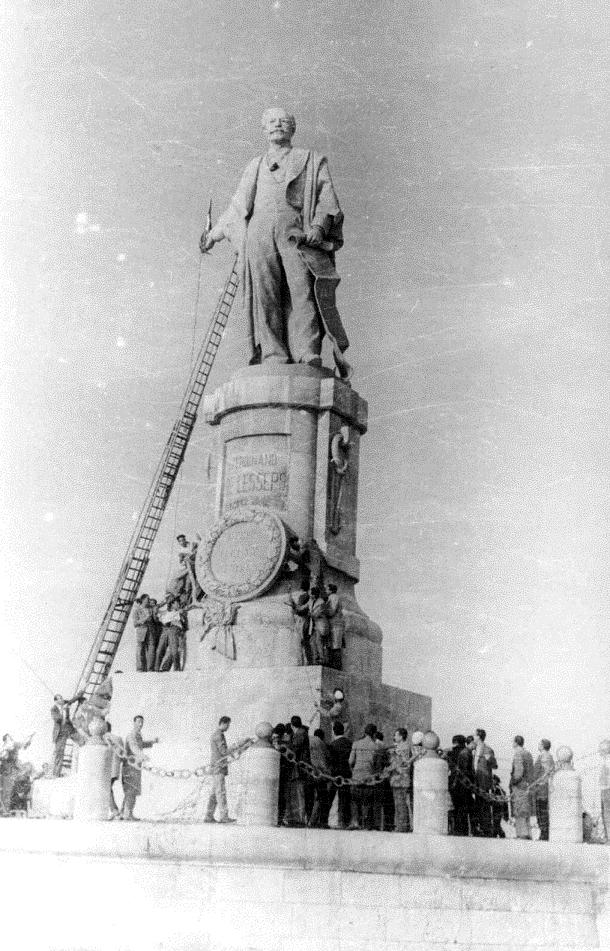Resolving the Suez Crisis:
Successful Debate & Diplomacy in the Cold War
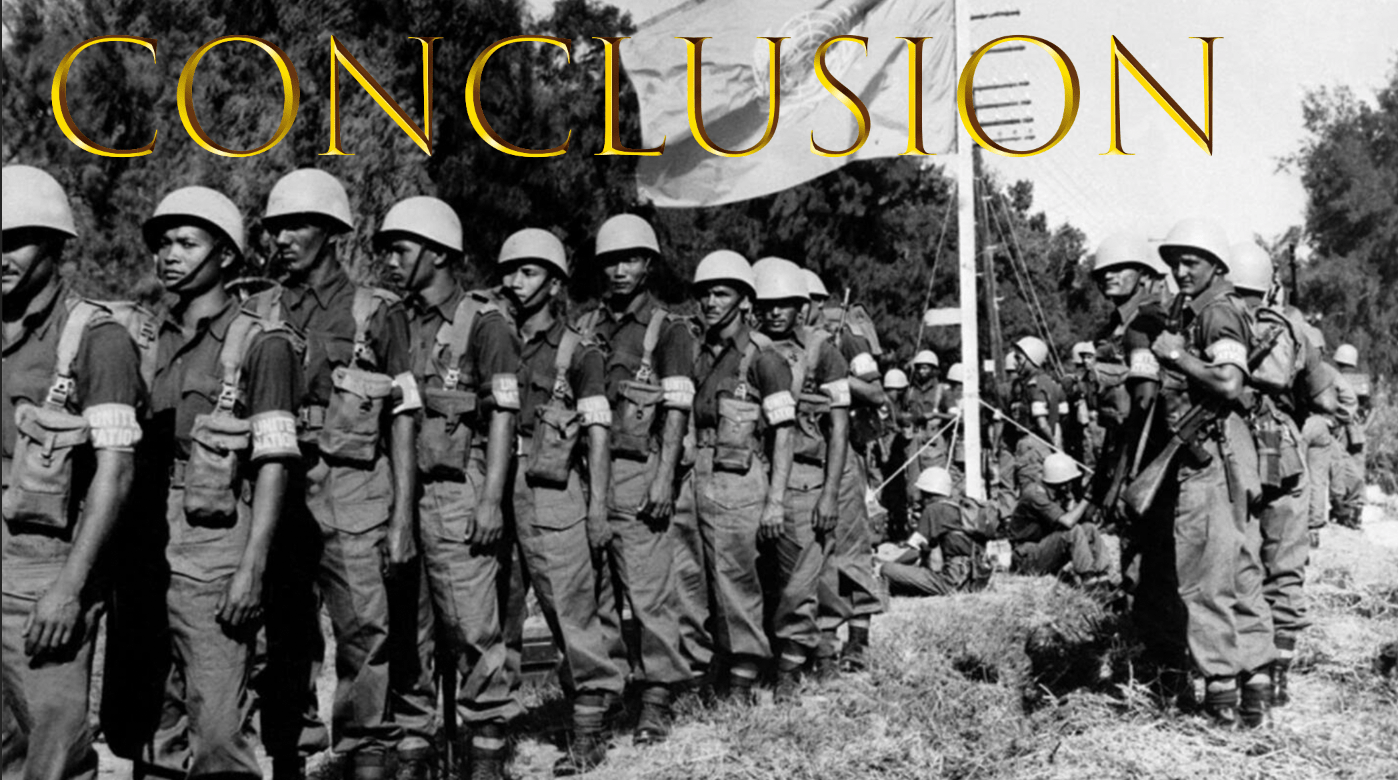
After the ceasefire at the Suez Crisis, the United Nations Emergency Force (UNEF) sent an Indian contigent to El Cap, Egypt, November 1956, History.com.
Middle-Eastern Legacy
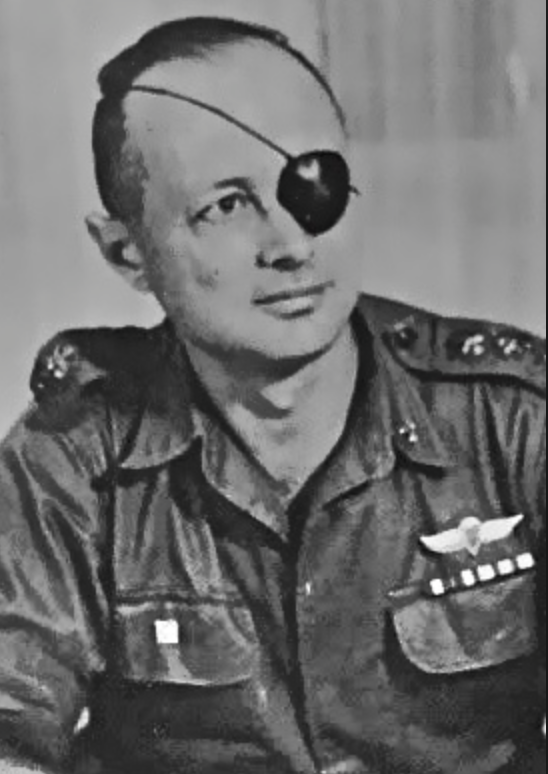
Moshe Dayan, Israelandstuff.com.
Straits of Tiran, IsarMUN.
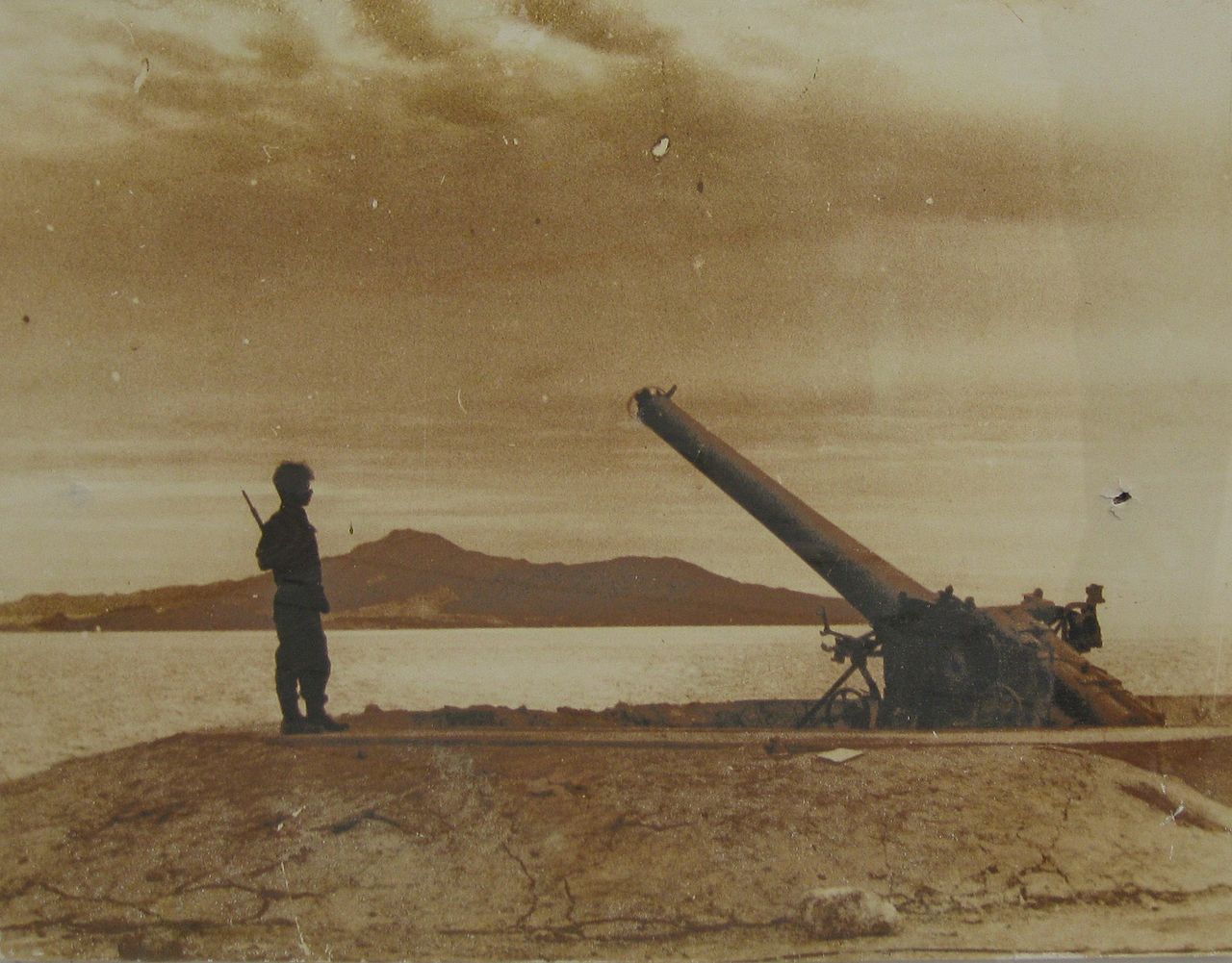
Israeli soldier next to Egyptian gun on the Straits of Tiran, Wikipedia.
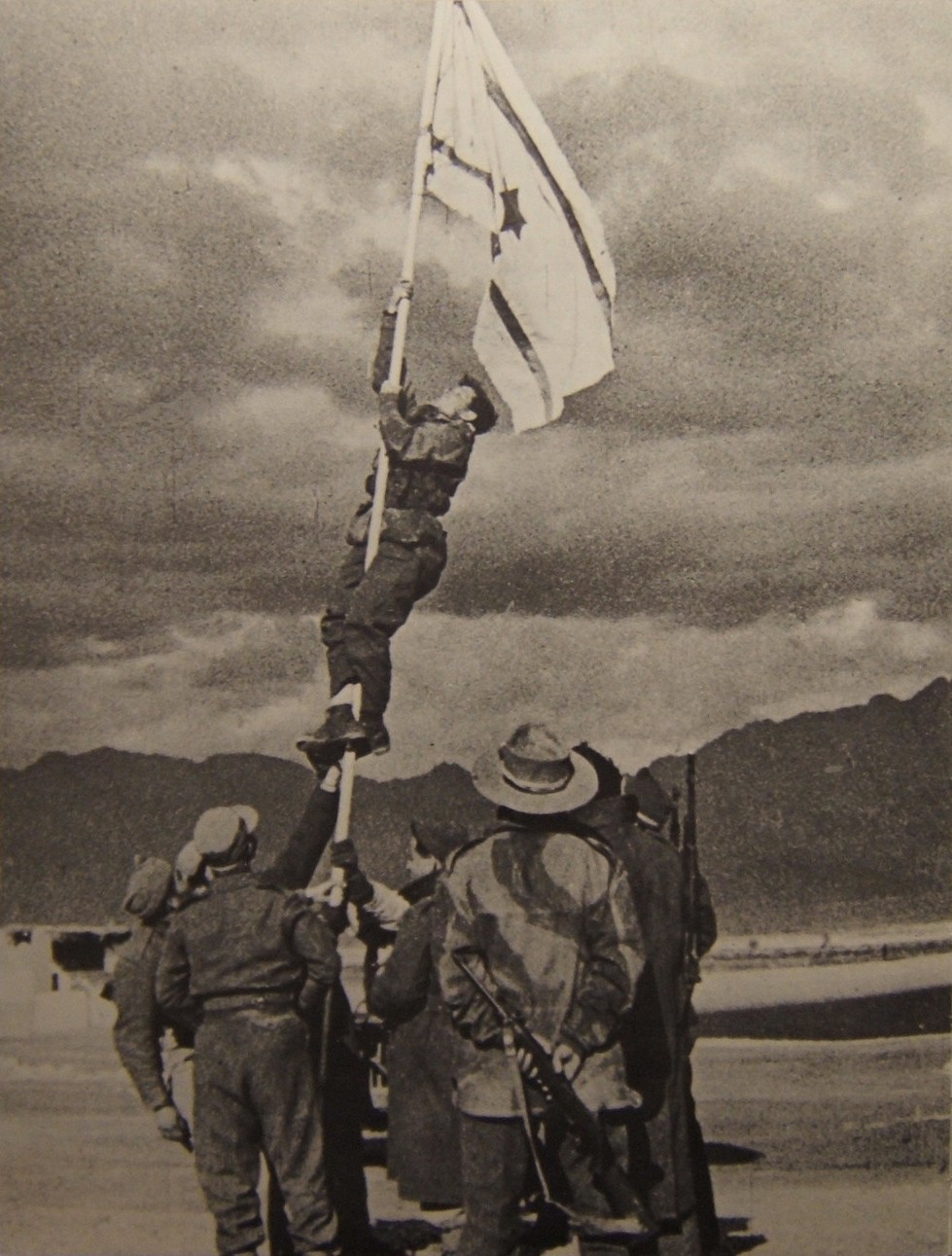
Victorious Soldiers Raising a Flag, Historama.com.
Israel’s efforts failed while simultaneously intensifying their diplomatic tensions with neighboring Arab countries for decades, but they succeeded in reopening the Straits of Tiran.
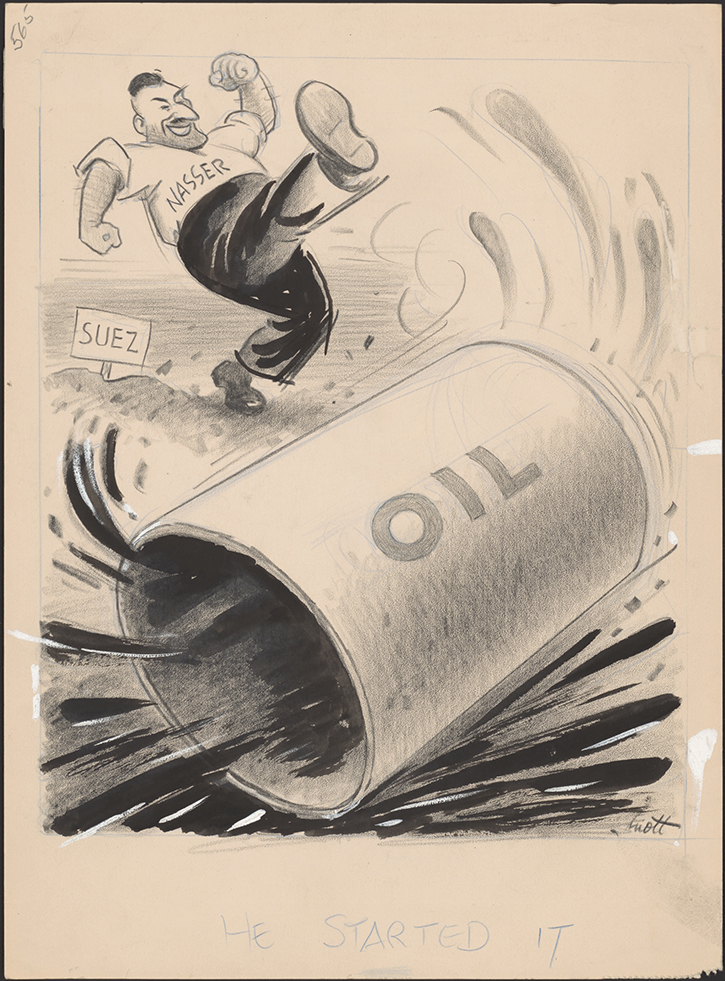
Nasser spilling oil into Suez Canal Cartoon, 1957, John Knock LOC.
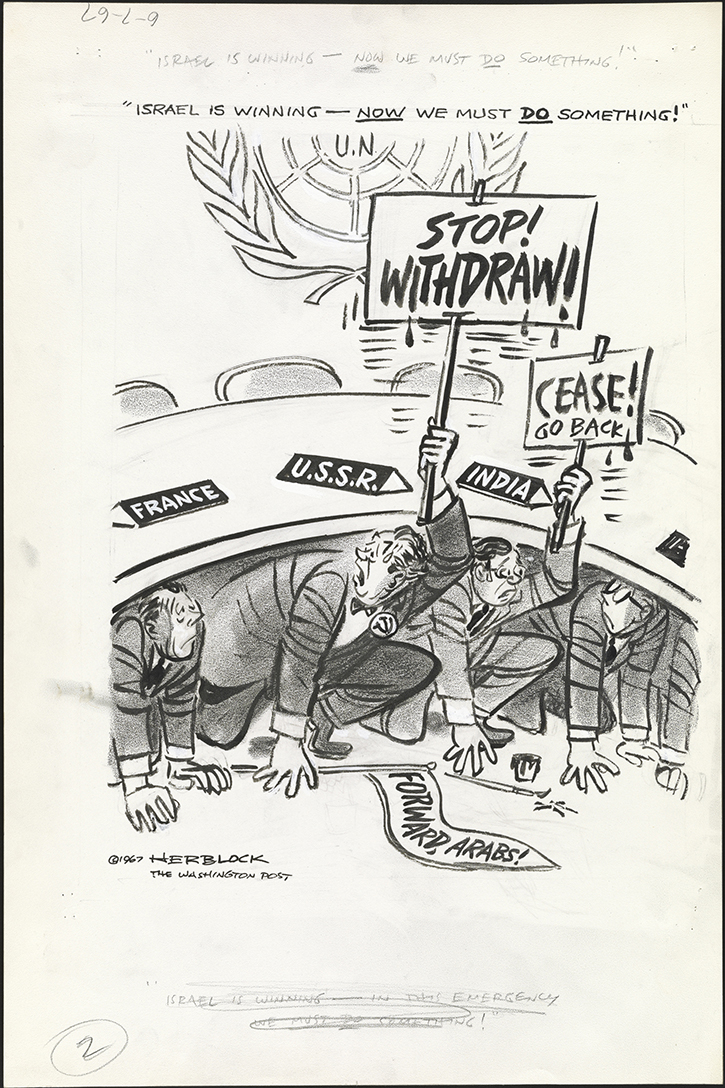
United Nations lack of clear message, 1967, Herblock LOC.
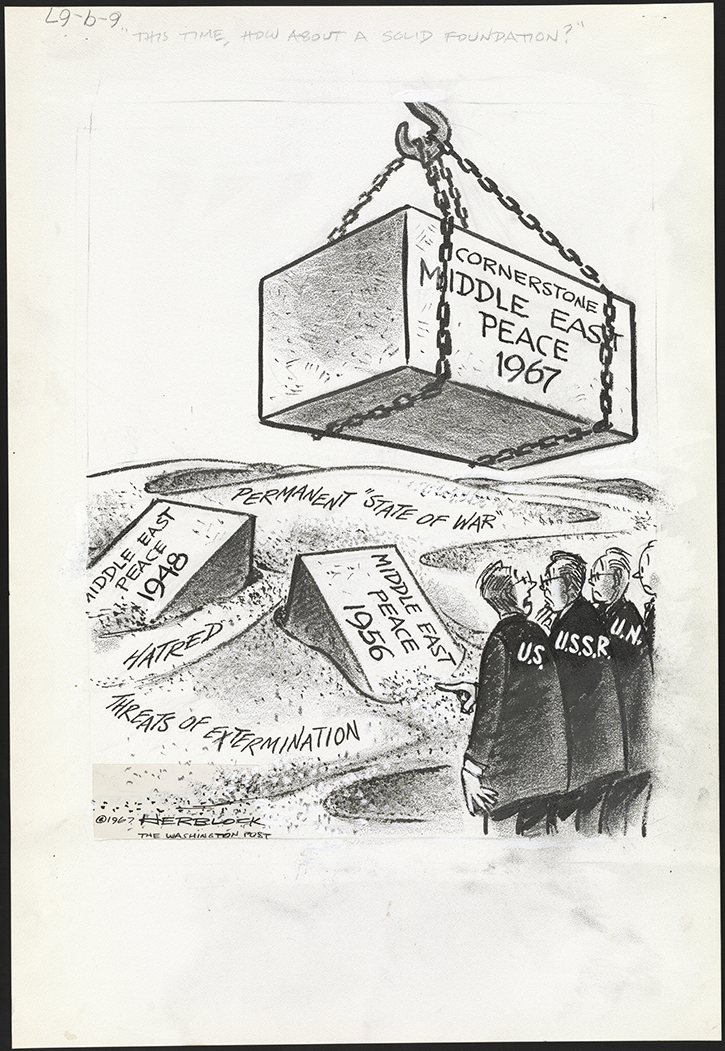
Continued Egyptian-Israeli conflict into 1967, Herblock LOC.
A long-term effect of Nasser’s nationalization remains the strained diplomatic relationship between Egypt and Israel; the two countries had little dialogue before the Suez Crisis.
European Legacy
Due to the USSR’s nuclear threats and their nuclear inadequacies, France quickly started their own arsenal. The old imperialist powers France and the United Kingdom became overshadowed by the United States and the USSR, which possessed much more intimidating nuclear stockpiles. Great Britain relied on waning military power rather than diplomacy, costing them their world power status, demonstrating their weakness without the United States.
Superpower Legacy
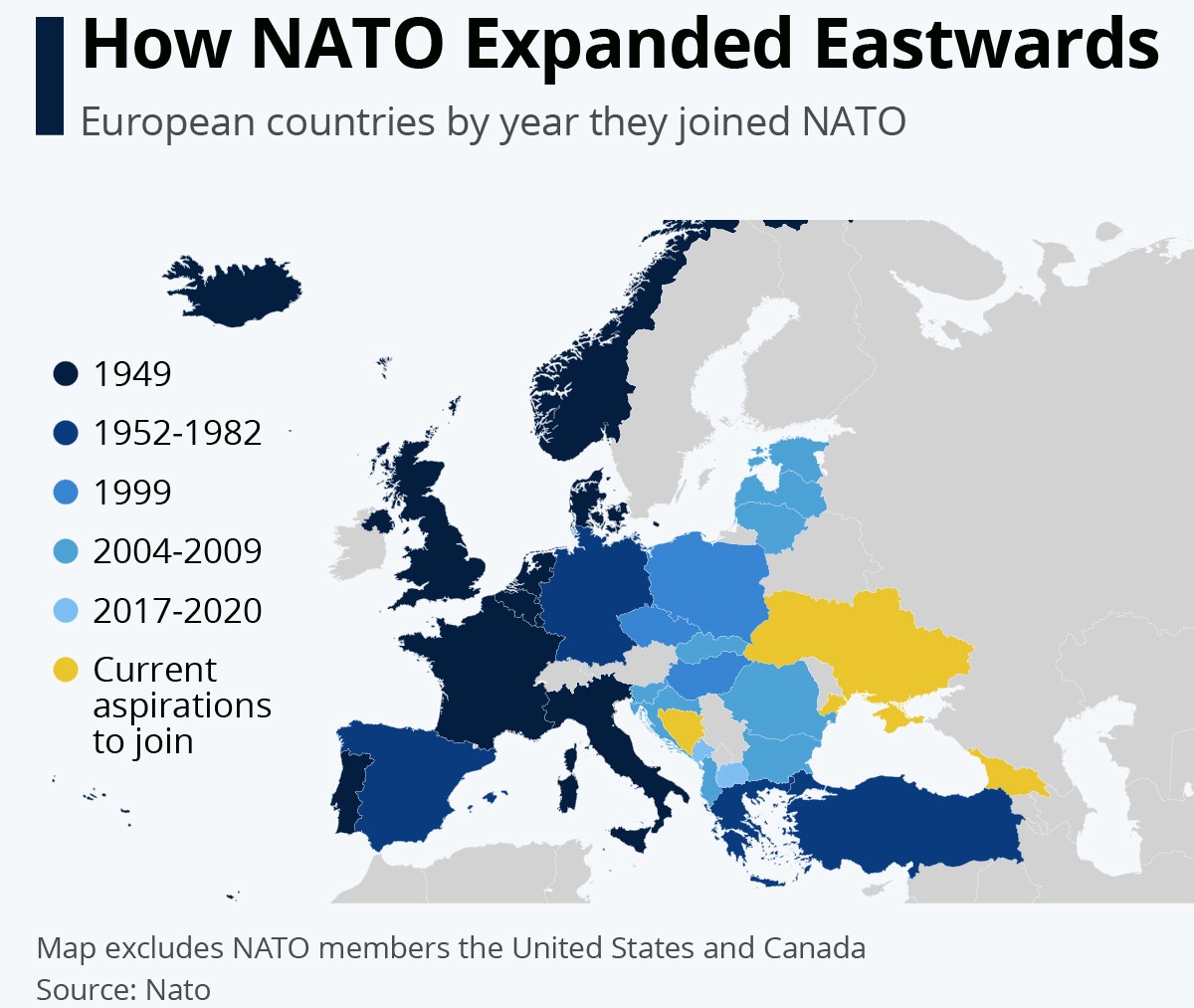
NATO Expansion in Europe, Mappr.
The Eisenhower Doctrine dictated American policy for years by economically assisting Middle Eastern nations to shield them from communism. However, America’s allies would no longer apply NATO obligations outside of vitally necessary interests, such as in Vietnam.
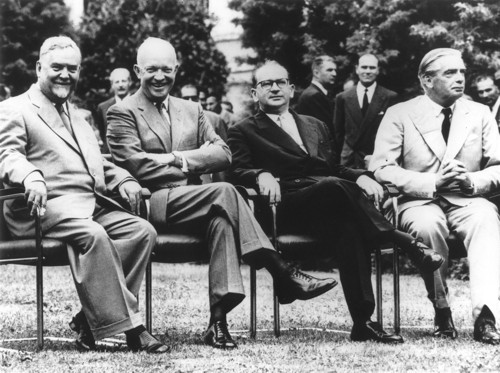
Russian Premier Bulganin, Eisenhower, French Premier Faure, and British P.M. Eden at the 1955 Geneva Conference, Launius.
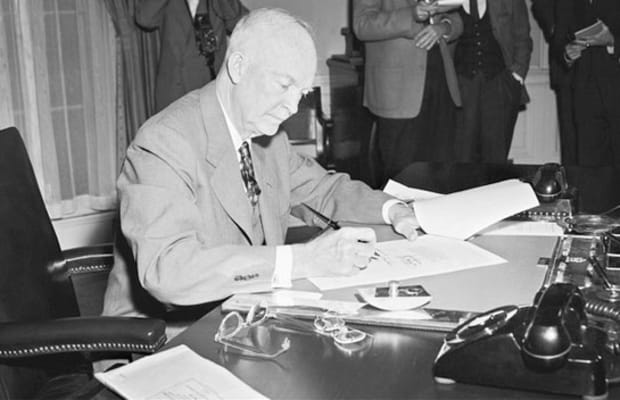
President Eisenhower signing into effect the Eisenhower Doctrine, 5 January 1957, History.com.
"Thus, the United States through the joint action of the President and the Congress, or, in the case of treaties, the Senate, has manifested in many endangered areas its purpose to support free and independent governments--and peace--against external menace, notably the menace of International Communism. Thereby we have helped to maintain peace and security during a period of great danger. It is now essential that the United States should manifest through joint action of the President and the Congress our determination to assist those nations of the Mid East area, which desire that assistance."
~ President Eisenhower, 5 January 1957, UC Santa Barbara
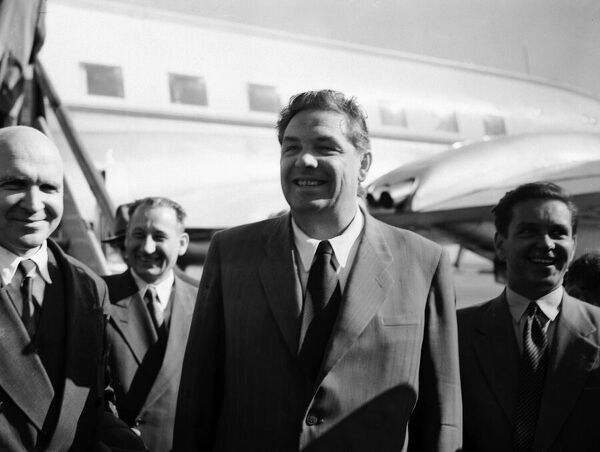
Dimitri Shepilov, Russian Foreign Minister, Media Storehouse.
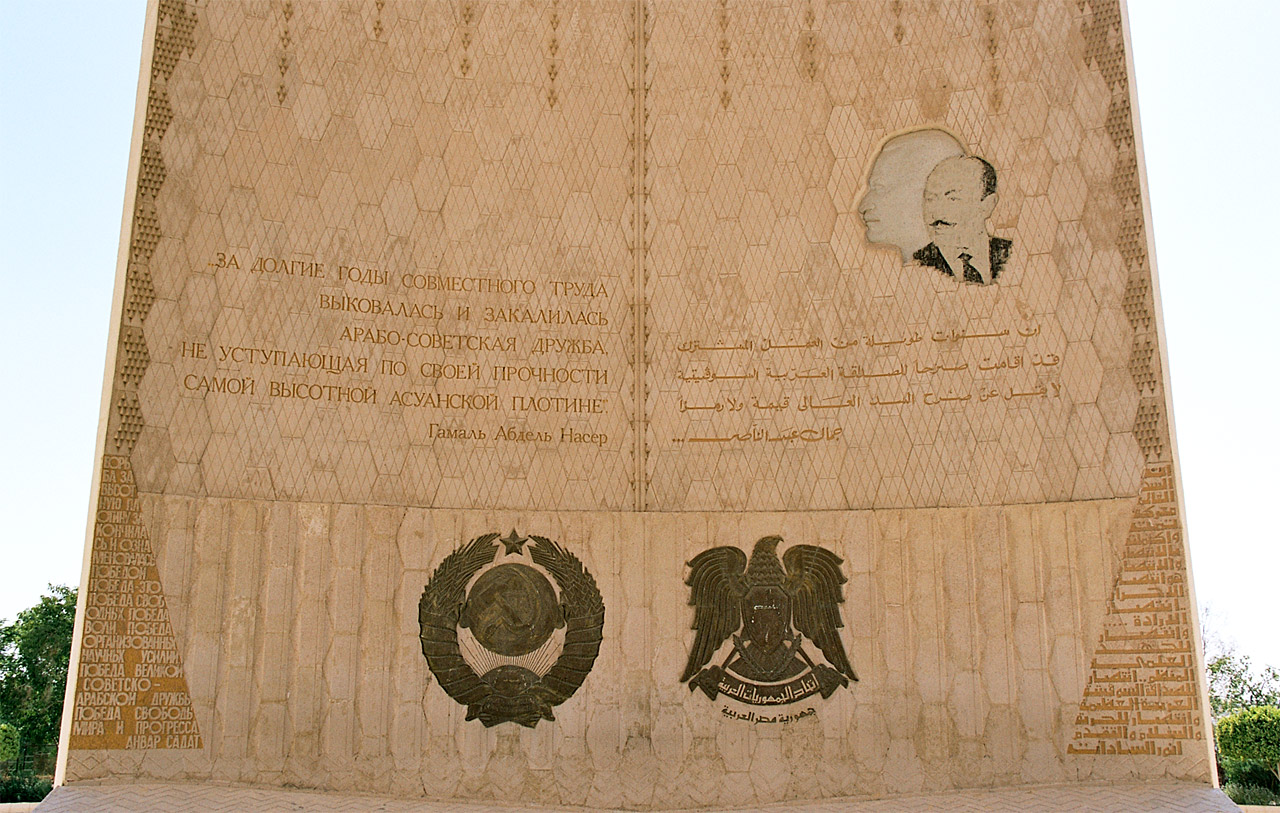
Memorial Located at the Aswan High Dam that commemorates Egypt-Soviet Friendship, Wikipedia.
"The Soviet Union on its part has been rendering assistance to the economically [undeveloped] countries and will be rendering such assistance on an ever-growing scale. We sincerely help the peoples of those countries in the establishment of their independent economy, in the development of their national industry which is the mainstay of real independence and of the uplift of the people's welfare."
~ Premier Khrushchev to UN General Assembly, 24 September 1960, The New York Times
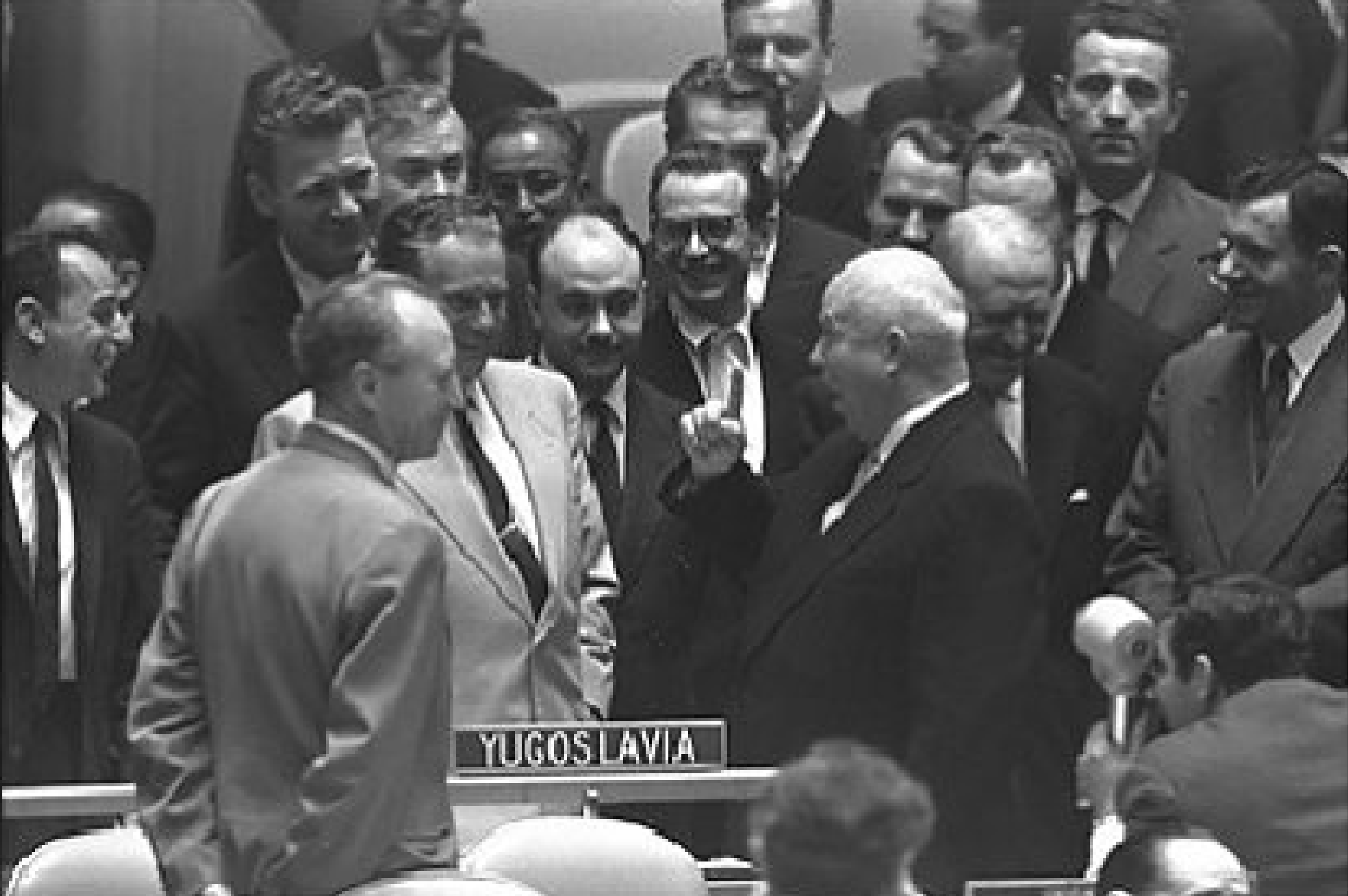
Khrushchev speaking to President Tito of Yugoslavia in the General Assembly, 26 September 1960, UN.
However, the USSR’s diplomacy in the UN, along with their threats of using “modern destructive weapons”, allowed for a successful intervention and further reinforced the Soviet Union’s increasing strength and position as a dominant world power. Soviet interference has continued through to contemporary conflicts, especially in Ukraine, which includes eerily similar nuclear threats.

